How to Determine Your Skin Type
How to Determine Your Skin Type
Understanding your skin type is crucial for developing an effective skincare routine that addresses your needs. By identifying whether you have oily, dry, combination, normal, or sensitive skin, you can tailor your products and treatments to achieve a healthy and radiant complexion.
Finding Your Skin Type
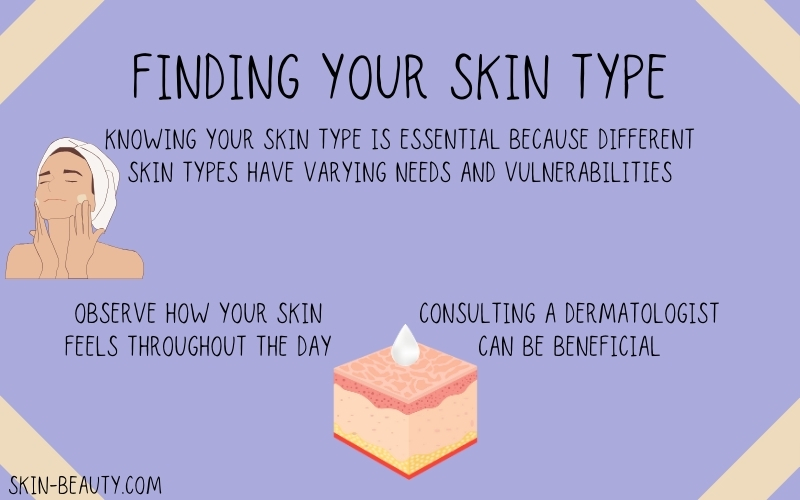
Discovering your skin type is the first step towards achieving glowing skin. By understanding the unique characteristics of each skin type, you can make informed decisions about the products and routines that will best suit your needs.
Why is Knowing Your Skin Type Important?
Knowing your skin type is essential because different skin types have varying needs and vulnerabilities. For example, oily skin is prone to excess sebum production, while dry skin lacks sufficient moisture. By identifying your skin type, you can choose products that address these specific concerns.
How to Identify Your Skin Type at Home
One way to determine your skin type at home is to observe how your skin feels throughout the day. Oily skin may appear shiny and feel greasy, while dry skin can feel tight and may show flakiness. Combination skin may have oily areas around the T-zone and dry patches elsewhere.
Consulting a Dermatologist for Skin Analysis
Consulting a dermatologist can be beneficial for a more precise analysis of your skin type. Dermatologists use advanced techniques to assess your skin condition, including examining pores, moisture levels, and any underlying skin concerns.
Common Skin Types
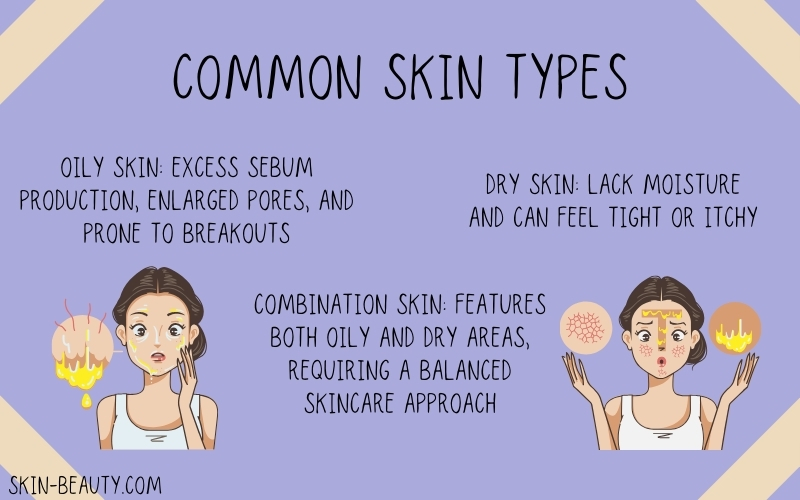
There are several common skin types, each with its own set of characteristics and challenges. Understanding these skin types can help you tailor your skincare routine for optimal results.
Understanding Oily Skin Characteristics
People with oily skin often have enlarged pores and are prone to acne breakouts due to excess sebum production. Choosing non-comedogenic products can help prevent clogged pores and control oiliness.
Gentle Care for Dry Skin
Dry skin lacks moisture and can feel tight or itchy. It is important to use hydrating products that lock in moisture and avoid harsh cleansers that strip the skin of its natural oils.
Dealing with Combination Skin
Combination skin features both oily and dry areas, requiring a balanced skincare approach. Tailoring your routine to address the specific needs of each area can help maintain a harmonious complexion.
Skincare Based on Skin Type
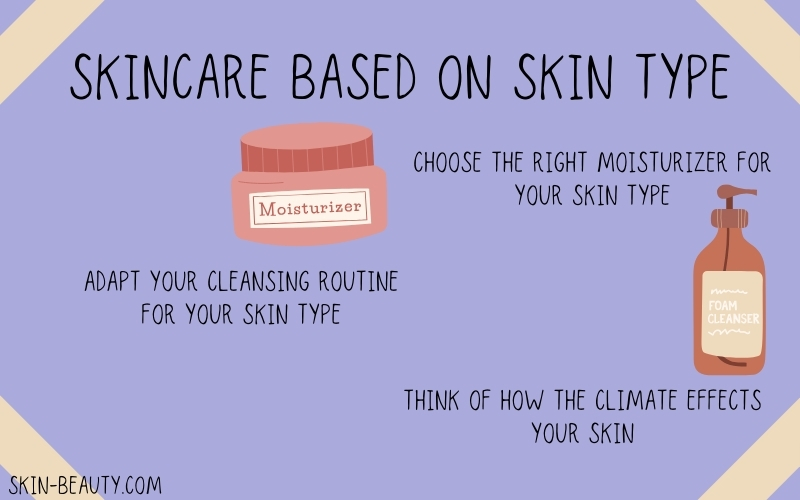
Choosing the right skincare products based on your skin type is essential for maintaining healthy and balanced skin. From moisturizers to cleansers, each product should be selected to address the specific needs of your skin.
Choosing the Right Moisturizer for Your Skin Type
Moisturizers play a vital role in hydrating the skin and maintaining its barrier function. For oily skin, opt for lightweight, non-greasy formulas, while dry skin may benefit from rich, emollient moisturizers.
Adapting Your Cleansing Routine for Different Skin Types
Cleansing is a crucial step in any skincare routine. For oily skin, use a gentle foaming cleanser to remove excess oil, while dry skin may benefit from creamy, hydrating cleansers that nourish the skin.
Effects of Climate on Your Skin Type
The climate can impact how your skin looks and feels. Oily skin may produce more sebum in humid conditions, while dry skin can become even drier in arid environments. Adjusting your skincare routine accordingly can help combat these effects.
Personalized Sensitive Skin Care
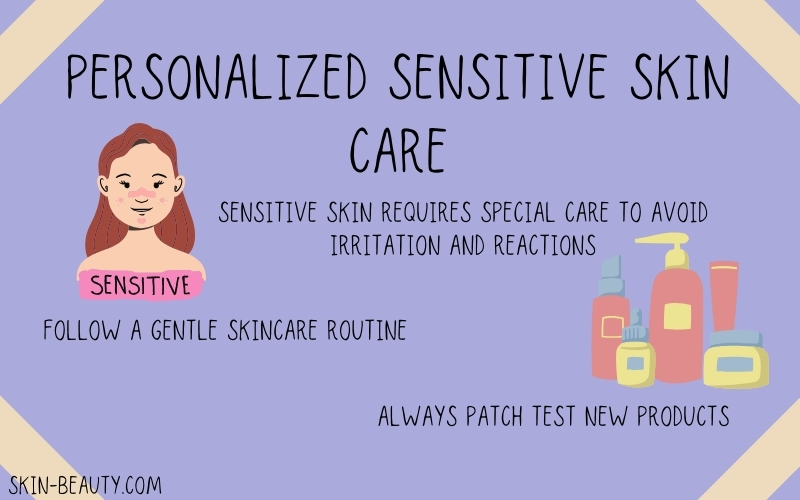
Individuals with sensitive skin require special care to avoid irritation and reactions. By recognizing triggers and following a gentle skincare routine, those with sensitive skin can maintain a healthy complexion without aggravating their skin.
Recognizing Triggers for Sensitive Skin Reactions
Sensitive skin can react to various triggers, such as harsh ingredients, fragrances, or environmental factors. Identifying and avoiding these triggers can help prevent flare-ups and maintain skin health.
Building a Hypoallergenic Skincare Routine
Opting for hypoallergenic, fragrance-free products can minimize the risk of skin irritation in sensitive individuals. Gentle cleansers, moisturizers, and sunscreen tailored for sensitive skin can help maintain a calm and balanced complexion.
Benefits of Patch Testing New Products
Before incorporating a new skincare product into your routine, perform a patch test to check for adverse reactions. Patch testing helps identify potential sensitivity before applying the product to your face and can prevent skin irritation.
Maintaining Healthy Skin
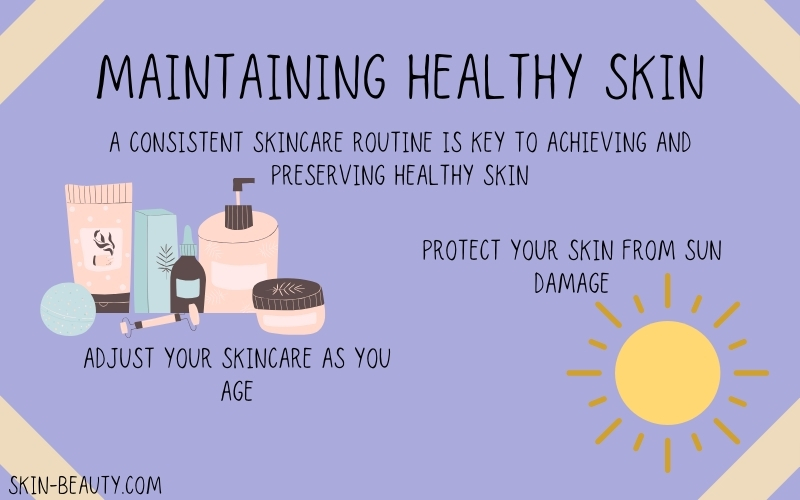
Regardless of your skin type, maintaining a consistent skincare routine is key to achieving and preserving healthy skin. By following best practices and adapting your routine as needed, you can promote skin health and radiance at every age.
Establishing a Consistent Skincare Routine
Consistency is key when it comes to skincare. Establishing a daily regimen that includes cleansing, moisturizing, and sun protection can help keep your skin looking its best and minimize the effects of environmental stressors.
Protecting Your Skin from Sun Damage
Sun exposure can accelerate skin aging and increase the risk of skin cancer. Using a broad-spectrum sunscreen daily, wearing protective clothing, and seeking shade can help shield your skin from harmful UV rays.
Adjusting Your Skincare Regimen as You Age
As we age, our skin undergoes changes that require adjustments to our skincare routine. Incorporating anti-aging products, hydrating formulas, and treatments tailored to mature skin can help address concerns such as fine lines, wrinkles, and loss of elasticity.
Recent Posts
-
Peptides For Skin: Exploring the Anti-Aging Benefits of Peptides in Skincare
Exploring the Anti-Aging Benefits of Peptides in Skincare In the universe of advanced skincare, th …Apr 25th 2024 -
Discover the Perfect Glasses & Styles to Enhance Your Rectangle Face Shape!
Your face shape plays a significant role in determining the most flattering hairstyles and makeup te …Apr 17th 2024 -
Moroccanoil Treatment for Hair: The Ultimate Guide
Moroccanoil Treatment for Hair: The Ultimate Guide In the world of hair care, few products have ca …Apr 1st 2024




